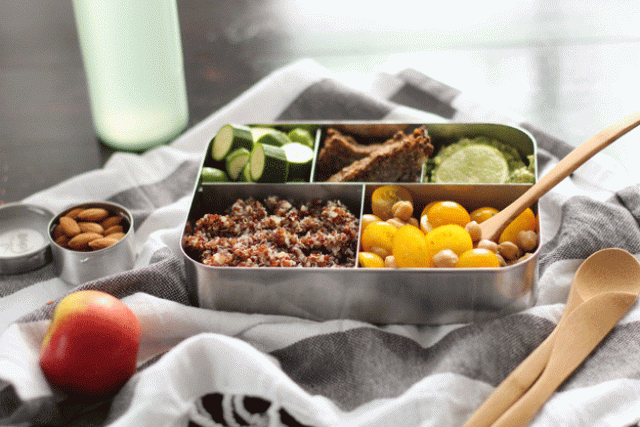Go for gold: 6 Olympian-approved ways of eating healthier
Here are some of the best sports nutrition secrets from some of the best sports nutritionists in the world

Of course, we are not athletes but one cannot deny that watching last month’s Olympics take place gave us some serious fitness goals. So why not try to emulate our favourite sports stars? As compiled from The Huffington Post, here are some of the best sports nutrition secrets from some of the best sports nutritionists in the world.
1) Food is fuel
According to Nancy Clark, a certified nutritionist who has worked with athletes in several Olympics, one should consider food as fuel. “Good nutrition is part of an Olympian’s lifestyle – just like training, bodywork and sleep,” she says. Today’s Olympians eat right not only for improved performance but to recover better and stay healthy.
Why you should too: Before taking a bite, ask yourself how what you are eating is going to make you feel and perform. Take it even further and track it on an online app and record how you feel afterwards. People who record what they eat – even if it’s only for a few days a week – generally have healthier diets.
2) Eat every four hours
To have enough energy to train (often for hours every day) and recover, athletes eat frequently. Most stick with an eating pattern that includes breakfast, lunch and dinner with two snacks within 30 minutes of a workout.
Why you should too: You don’t need the same quantity of calories that Olympians do but the same performance nutrition guidelines apply. Eat every four hours and plan meals or snacks that provide both carbs and protein, within 30 minutes of finishing your workout. Equal distribution of calories helps optimise energy levels and the right post-workout fuel enhances your body’s ability to recover and gain from the workout.
3) Optimise your proteins
Protein provides essential amino acids athletes need to recover and rebuild. “We plan our athletes’ meals and snacks so they have quality protein options at breakfast, lunch, dinner and especially post-exercise,” explains Alicia Kendig, a senior sport dietitian at the United States Olympic Committee. Fish and seafood, Greek yogurt, beef, poultry and beans are all good protein choices, according to her. “Probiotics in yogurt help keep athletes’ GI tracts in balance and promotes a healthy immune system,” Kendig says.
Why you should too: Studies show proteins enhance satiety more than carbs or fats, so try to get optimal protein at each of your three main meals – about 20 to 30 grams. For optimal recovery, choose proteins with carbohydrates within 30 minutes to an hour after exercise.
4) Hydrate early and often
Sports nutritionist Meg Mangano reveals athletes start drinking water as soon as they get up, and continue drinking fluids throughout the day, as dehydration can significantly impact performance.
Why you should too: “Most people live in a constant state of mild dehydration,” Mangano explains. Being dehydrated not only impedes athletic performance but can lead to a sluggish metabolism so drink ample water (or other calorie-free beverages). A good goal is to drink about half your body weight in water (or other calorie-free beverages) every day. If you weigh 150 pounds, you should drink 75 ounces (nearly 10 cups) of water.
5) Stick to quality carbs
Carbohydrates are the primary fuel for your muscles and Olympians know the type, timing and amount they need. For most, more than half of their daily calories come from nutrient-rich options such as whole grains, fruit, potatoes, beans, legumes and yogurt. Sports drinks and other simple-sugar options are generally reserved for before, during and post-exercise.
Why you should too: There’s no need to fear carbs as long as you eat nutrient-rich options and keep tabs on both the amount and time that you eat them. Ideally, enjoy carbohydrates before, during and after exercise only.
6) The 85-15 rule
No one eats perfectly all the time, including the most decorated Olympians. “They stick to their performance nutrition guidelines about 85% of the time and are more relaxed about their food choices for the remaining meals,” Clark says. This doesn’t mean they’ll eat anything but that they may indulge in some baked, fried salty goodies.
Why you should too: If you try to eat perfectly all the time, you only set yourself up for failure. Instead, aim to make good choices for 18 of the 21 meals a week so you can pig out on the remaining three.
Published in The Express Tribune, September 8th, 2016.
Like Life & Style on Facebook, follow @ETLifeandStyle on Twitter for the latest in fashion, gossip and entertainment.



















COMMENTS
Comments are moderated and generally will be posted if they are on-topic and not abusive.
For more information, please see our Comments FAQ